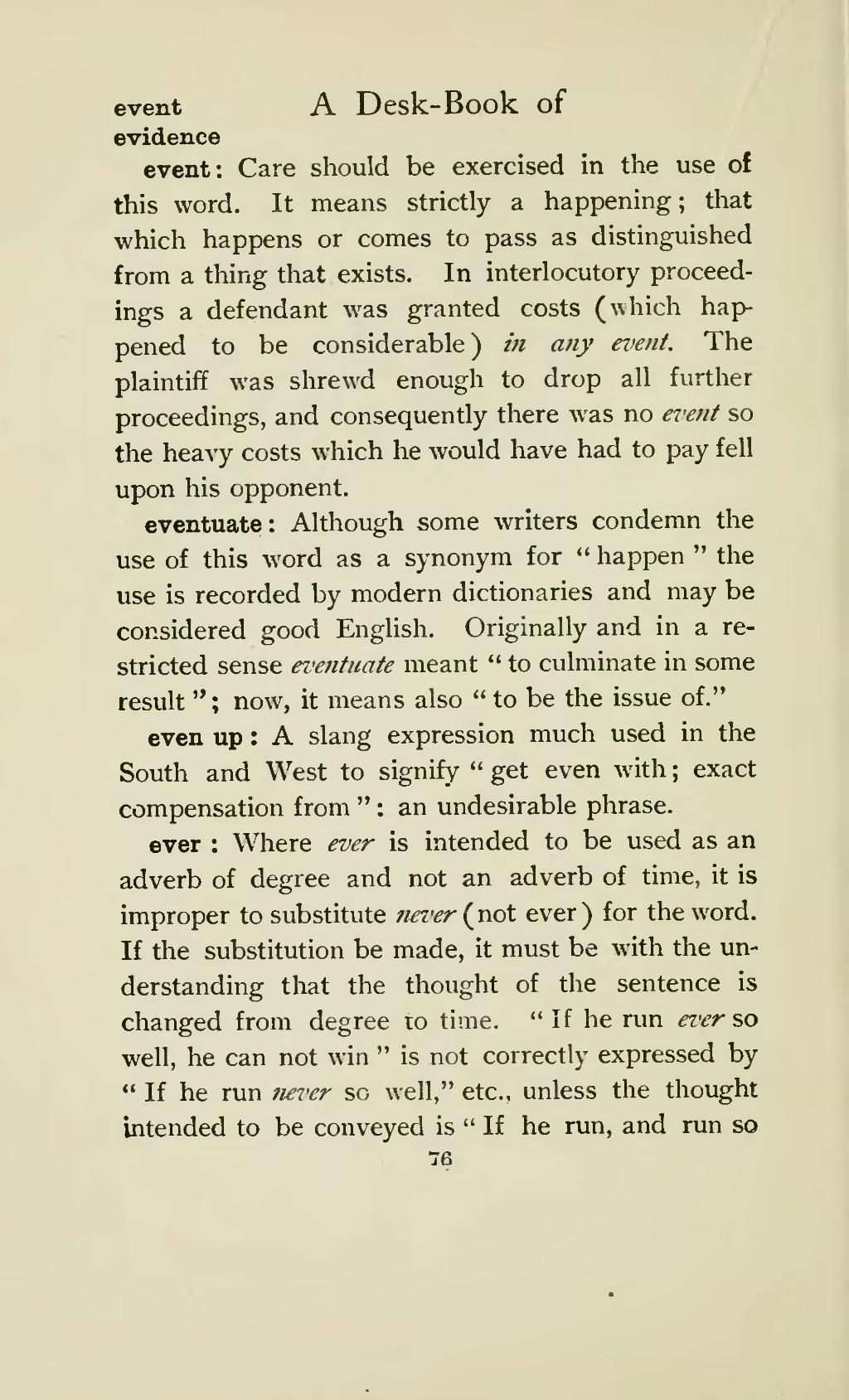evidence
event: Care should be exercised in the use of this word. It means strictly a happening; that which happens or comes to pass as distinguished from a thing that exists. In interlocutory proceedings a defendant was granted costs (which happened to be considerable) in any event. The plaintiff was shrewd enough to drop all further proceedings, and consequently there was no event so the heavy costs which he would have had to pay fell upon his opponent.
eventuate: Although some writers condemn the use of this word as a synonym for "happen" the use is recorded by modern dictionaries and may be considered good English. Originally and in a restricted sense eventuate meant "to culminate in some result"; now, it means also "to be the issue of."
even up: A slang expression much used in the South and West to signify "get even with; exact compensation from": an undesirable phrase.
ever: Where ever is intended to be used as an adverb of degree and not an adverb of time, it is improper to substitute never (not ever) for the word. If the substitution be made, it must be with the understanding that the thought of the sentence is changed from degree to time. "If he run ever so well, he can not win" is not correctly expressed by "If he run never so well," etc., unless the thought intended to be conveyed is "If he run, and run so
76
